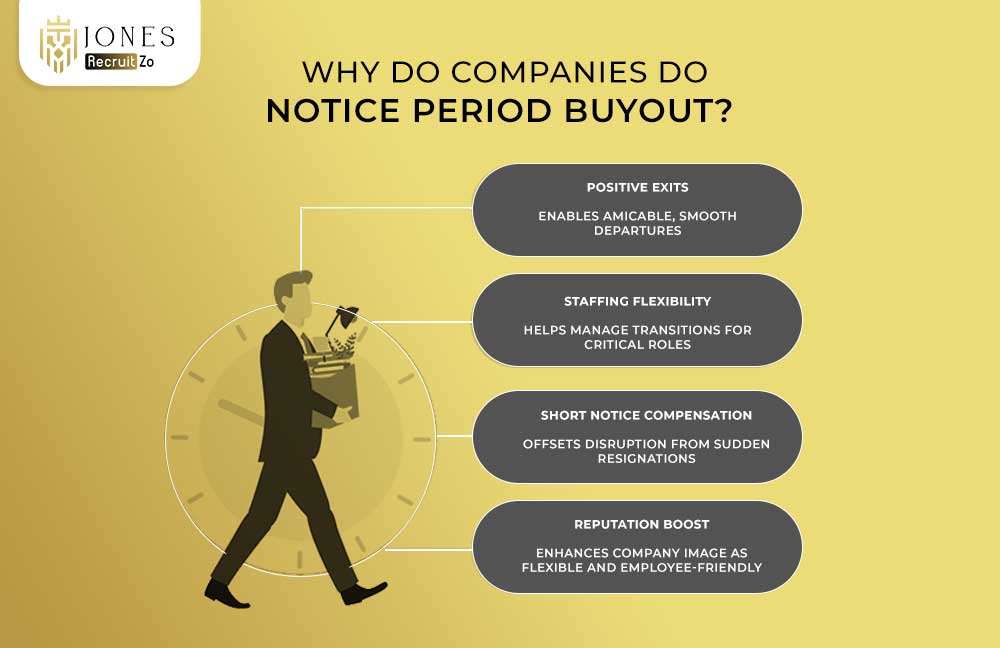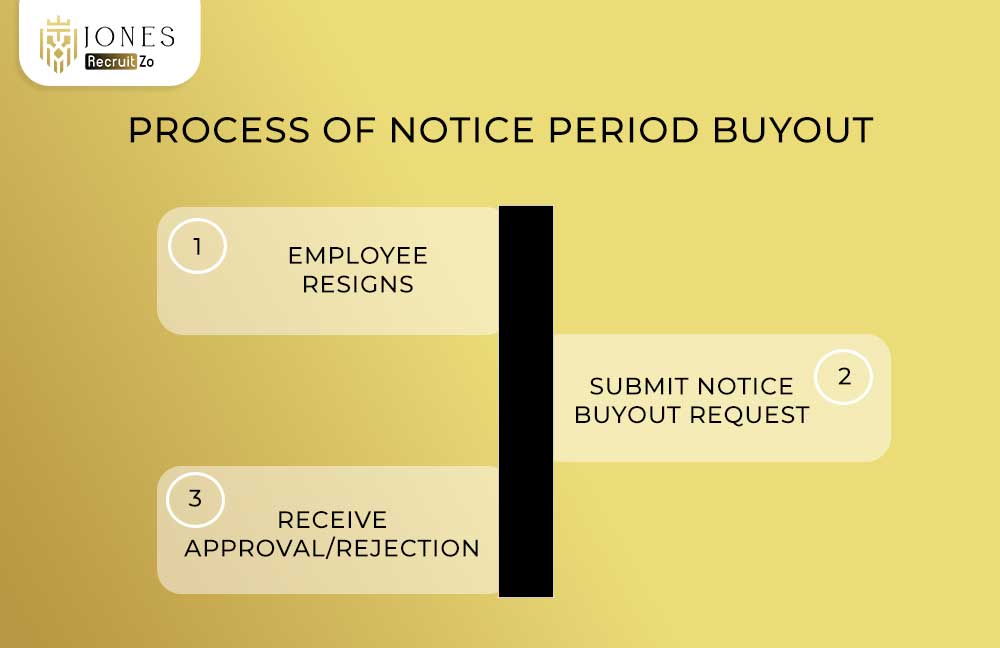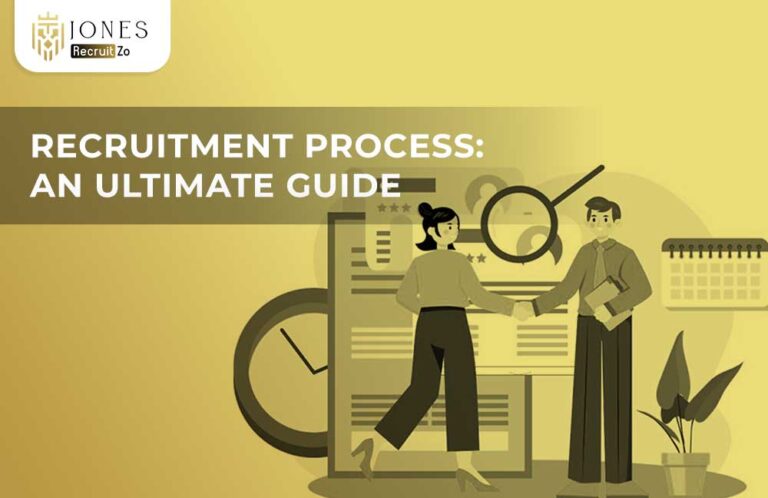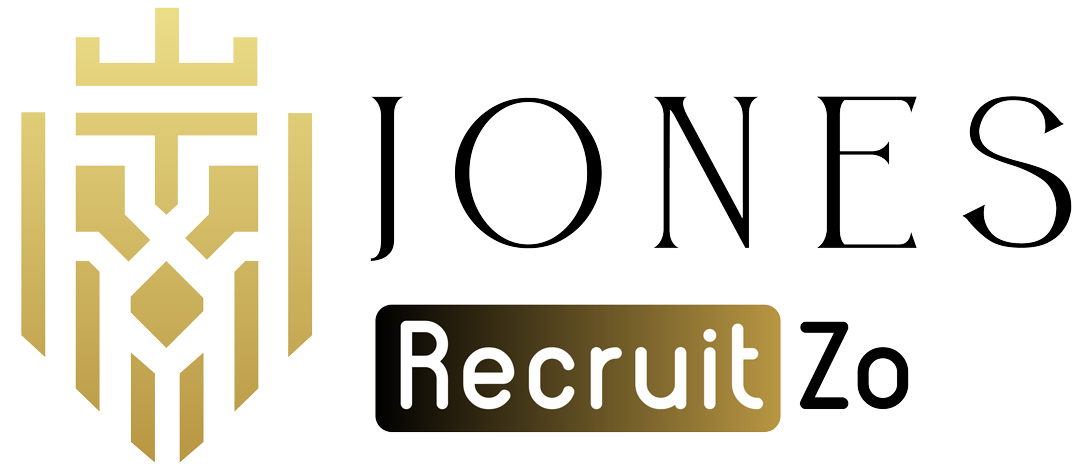What is a Notice Period Buyout?
A notice period buyout is essentially an agreement between an employee and employer that allows the employee to pay a certain amount of money in exchange for not completing their full notice period. It provides a pathway for the employee to exit the company sooner while compensating the employer for the inconvenience. Understanding what notice period buyout means is crucial for anyone considering this option, as it can simplify the often-stressful process of job transitions.
How does Notice Period Buyout work?
The mechanics of a notice period buyout are relatively straightforward. The process begins when an employee formally submits their resignation, clearly stating their intended last working day based on the notice period required by their employment contract. After resigning, the employee can then request a notice period buyout. This request is typically made in writing and should detail the reasons for leaving early, along with a proposed financial compensation amount.
Once the request is submitted, the employer evaluates it by considering the employee’s role, the potential impact of their departure on the team, and any ongoing projects. If the employer agrees to the buyout, the employee will pay the determined buyout amount and can leave the organization sooner than initially planned. This arrangement ensures that both the employee and employer are aligned, allowing for a smoother transition.
Why do Companies do Notice Period Buyout?
Companies have various reasons for adopting notice period buyouts, and these motivations can significantly impact their operations. Let’s explore some key reasons:
Positive Exits
One of the primary reasons companies consider notice period buyouts is to facilitate positive exits. By allowing employees to leave amicably, companies foster a better atmosphere and reduce the chances of resentment. This can be beneficial for the organization’s overall morale and reputation.
Control Over Staffing
Notice period buyouts provide organizations with greater control over staffing. When an employee resigns, particularly in a critical role, having the option for a buyout means the company can manage the transition without significant disruption. This flexibility is essential for maintaining productivity and team dynamics.
Compensation for Short Notice
Another motivation for implementing notice period buyouts is to provide compensation for the inconvenience of short notice resignations. When an employee leaves unexpectedly, it can lead to staffing shortages and operational challenges. The buyout amount helps to offset these issues, allowing the company to allocate resources more effectively during the transition period.
Enhancing Company Reputation
When companies embrace notice period buyouts, they often enhance their reputation as flexible and employee-friendly organizations. This positive perception can help attract top talent in the future, as job seekers often prioritize companies that demonstrate a willingness to accommodate their needs during transitions.

Understanding the process of a notice period buyout can be essential for employees looking to transition out of their current roles smoothly. Understanding the steps involved not only helps in making informed decisions but also ensures that the resignation process is handled professionally.
Employee Resigns
The first step is for the employee to formally resign from their position. This typically involves submitting a resignation letter that includes the intended last working day based on the notice period. A well-written resignation letter can leave a lasting positive impression, which is crucial for maintaining professional relationships.
Submit Notice Buyout Request
After submitting their resignation, the employee can then submit a formal request to buy out their notice period. This request should clearly outline their reasons for wanting to leave early and propose a compensation amount for the unserved notice days. Being transparent about the reasons for the buyout can help build trust and facilitate discussions with management.
Receive Approval/Rejection
Once the request is submitted, the employer will review it and decide whether to approve or reject it. Factors considered may include the employee’s role, the impact of their departure on the team, and any current projects that require their attention. If the employer agrees, the employee can pay the buyout amount and leave earlier than planned, marking a smooth end to their tenure at the company.

How to Calculate Notice Period Buyout?
Calculating the amount for a notice period buyout is typically straightforward. The first step is to determine your daily wage. This can be done by dividing your monthly salary by the number of working days in the month. For instance, if your monthly salary is ₹60,000 and there are 20 working days in that month, your daily wage would be ₹3,000.
Next, you need to calculate how many days are left in your notice period. For example, if your notice period is 30 days and you have already served 10 days, there are 20 days remaining. Knowing the number of remaining days is crucial, as it directly impacts the total buyout amount.
To find the total buyout amount, multiply your daily wage by the number of remaining notice days. In our example, with a daily wage of ₹3,000 and 20 days left in the notice period, your notice period buyout would amount to ₹60,000. This means you would need to pay your employer ₹60,000 to buy out your notice period and leave the organization earlier than originally planned.
Understanding this calculation can help you make informed decisions about whether to pursue a notice period buyout and ensure that you are financially prepared for the transition. Always consult your HR department for specific guidelines and calculations tailored to your employment agreement.
FAQs
-
What is a Notice Period Buyout?
A notice period buyout means an arrangement that allows an employee to pay a certain amount of money to their employer instead of serving the full notice period after resigning. This enables the employee to leave their job earlier while compensating the employer for the inconvenience caused by the early departure. It fosters a smoother transition for both parties.
-
How to Calculate Notice Period Buyout?
To calculate a notice period buyout, start by determining your daily wage by dividing your monthly salary by the number of working days in the month. Then, figure out the number of remaining days in your notice period. Finally, multiply your daily wage by the remaining days to find the total buyout amount.
-
What is the Process of Buyout?
The process of a notice period buyout begins with an employee formally resigning and then submitting a request for the buyout. This request should detail the reasons for leaving early and propose a compensation amount. The employer reviews the request and decides whether to approve or reject it, allowing the employee to leave sooner if accepted.
-
Is Notice Buyout Legal?
Yes, notice period buyouts are generally legal as long as they are stipulated in the employment contract or mutually agreed upon between the employee and employer. However, specific laws and regulations may vary based on local labor laws, so it’s important for both parties to understand the legal framework surrounding the buyout agreement. Always consult your HR department for guidance.







